In recent times the European PV market has been characterised by high solar module inventories but falling export figures and lower demand in the second half of the year.
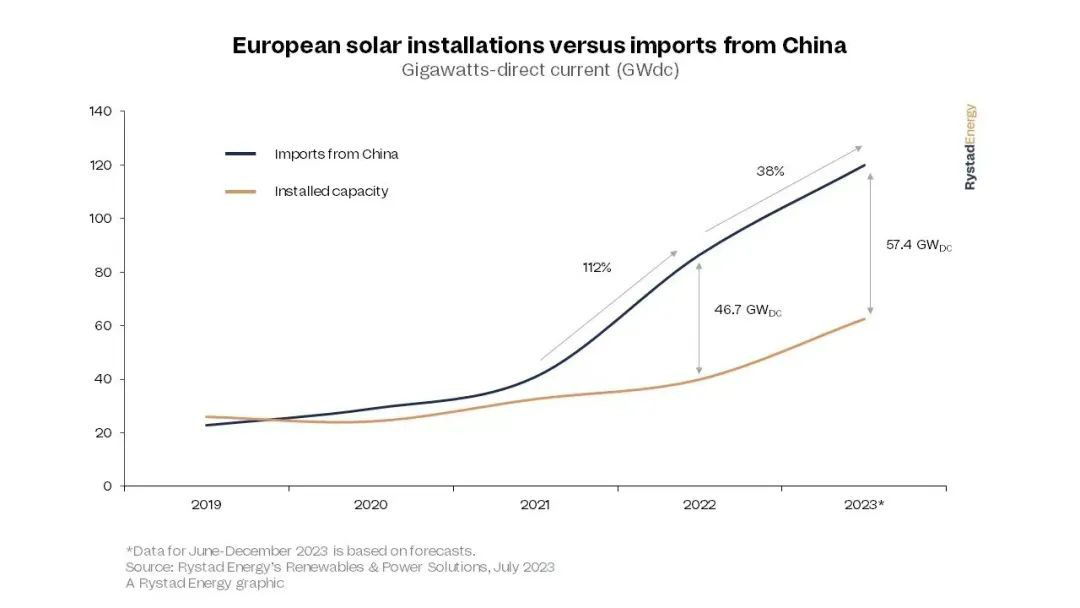
From the middle of 2022, the difference between the export data and the actual installed capacity data in the European PV market has always remained above 45GW.
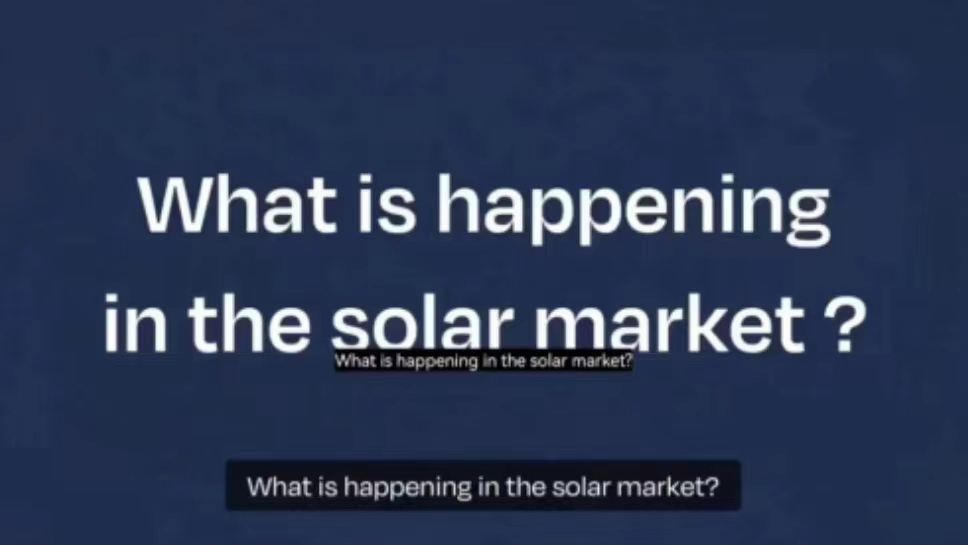
The Current Market Environment:
From the point of view of hoarding, on the one hand, due to the 2022 European PV market has been in a state of shortage, so the selling price of solar modules has been maintained at a high level, so manufacturers have begun to hoard large quantities of goods; on the other hand, some manufacturers in order to whitewash their own export data followed by the phenomenon of excessive hoarding.
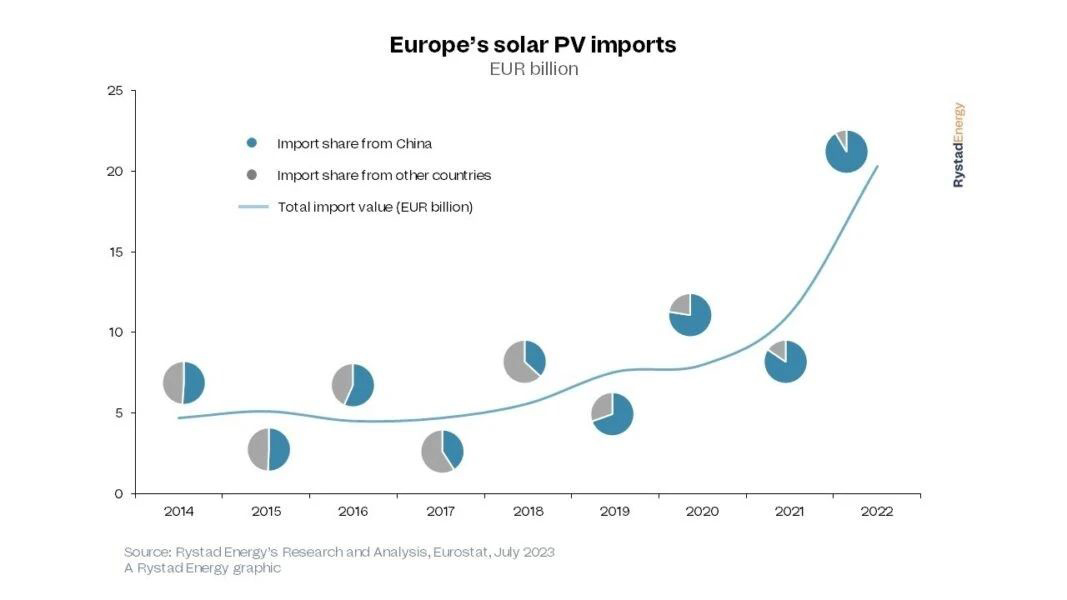
There are many dealers feedback in the beginning of this year when Germany has not so much spot, and the price is also very high, then do spot dealers business is very considerable. But with more and more goods on the market, as long as there is a peer to start clearing inventory then all peers on the market to be forced to follow, otherwise there is no business. Therefore, the solar modules spot price all the way down, and in recent months the component price even fell by more than 25% continuously.
There is also dealer feedback, May to July when the European market for solar modules suddenly increased, but in August and began to promote the price dropped significantly, so the order volume up again. Many merchants see the price of such fluctuations in the market are afraid to act rashly, is still in a position to continue to wait and see.
The reaction of the local solar industry in Europe:
Europe's most influential solar energy association SPE (solarpowereurope) wrote a letter to the EU mentioned that if no immediate action, then the European local solar manufacturers will face a wave of bankruptcy, and they can not accept this and urge the EU to take immediate action.
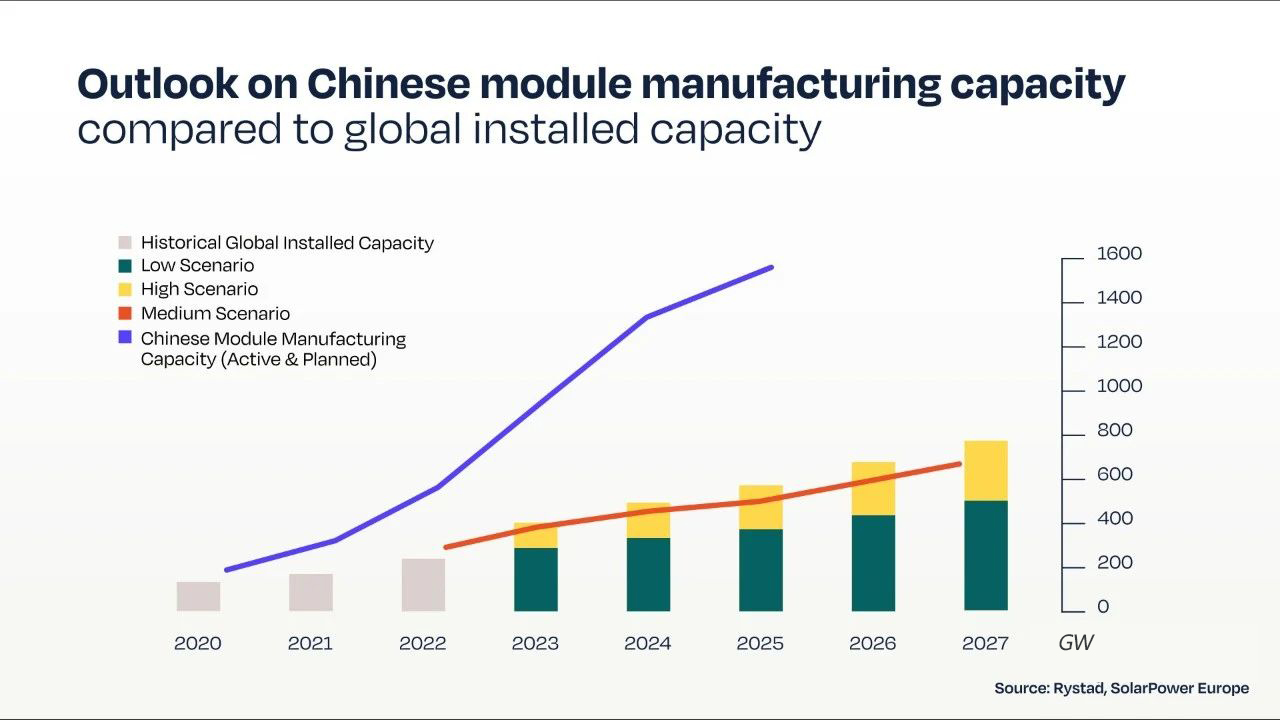
China's module production capacity vs. global installed capacity
SPE asked the EU to take the following seven actions:
1. make a rapid and urgent acquisition of module stocks from local European PV module manufacturers:
This could be procured through EU-level SPEs or through the development of the Ukrainian Green Reconstruction Loan Facility. These urgent measures are critical in the short term and are the only effective way to address the looming stock depreciation and ensure the survival of many European manufacturing companies.
2. create a solar manufacturing bank at the EU level:
Similar to the Hydrogen Bank under the Innovation Fund, based on a system of bilateral competitive auctions, the bank unites the cheapest European solar manufacturing projects with the developers with the highest willingness to pay, backed by a contract for difference with the state. Such a solar manufacturing bank could be set up in a matter of weeks to provide much-needed short-term financial support to rebuild the European solar supply chain.
3. Address the shortcomings of the Temporary Transitional and Crisis Framework for State Aid:
There are provisions that allow for matching aid to Europe's global competitors, but do not adequately allow for aid for operating expenses that compensate for structural energy cost disadvantages.
4. Accelerate the adoption of the Net Zero Sector Law, including by introducing strong sustainability and resilience non-price criteria in specific auctions:
Member States should be allowed to set up "flexible auctions" that reward the highest share of solar PV systems produced in the EU. This will ensure a stable market for European manufacturers in the coming years, which is crucial during the scale-up phase of the industry.
5. Advance the effectiveness of the EU Forced Labour Regulation by supporting the Solar Stewardship Initiative (SSI):
SSI, as a value chain assurance programme, ensures that companies are able to independently demonstrate their commitment to upholding sustainability best practices in their production through third-party audits. With the support and endorsement of the European Commission and national governments, we will accelerate the market adoption of SSI, enabling project developers to focus on SSI-compliant PV module imports, which may have an upward impact on PV module import prices.
6 Achieve synergies between Member States' programmes:
Support the establishment of a European PV manufacturing value chain and ensure the emergence of significant pan-national PV manufacturing clusters. Only by fully utilising the strengths of the EU's market and technology ecosystem can European manufacturers become competitors in the global PV market.
7. Promote European demand for solar PV:
This can be achieved in the short term, for example, by implementing a rooftop solar mandatory order as part of the ongoing European Building Performance Directive or by pushing Member States to implement the December 2022 EU Emergency Regulation to accelerate the development of renewable energy. EU leaders should also address the inflationary impact of currently deferred solar projects, for example by working with the ECB. Ultimately, the only structural way to deal with oversupply is to boost demand. This is a win for all players in the solar industry, as well as for Europe's economic, security and climate goals.
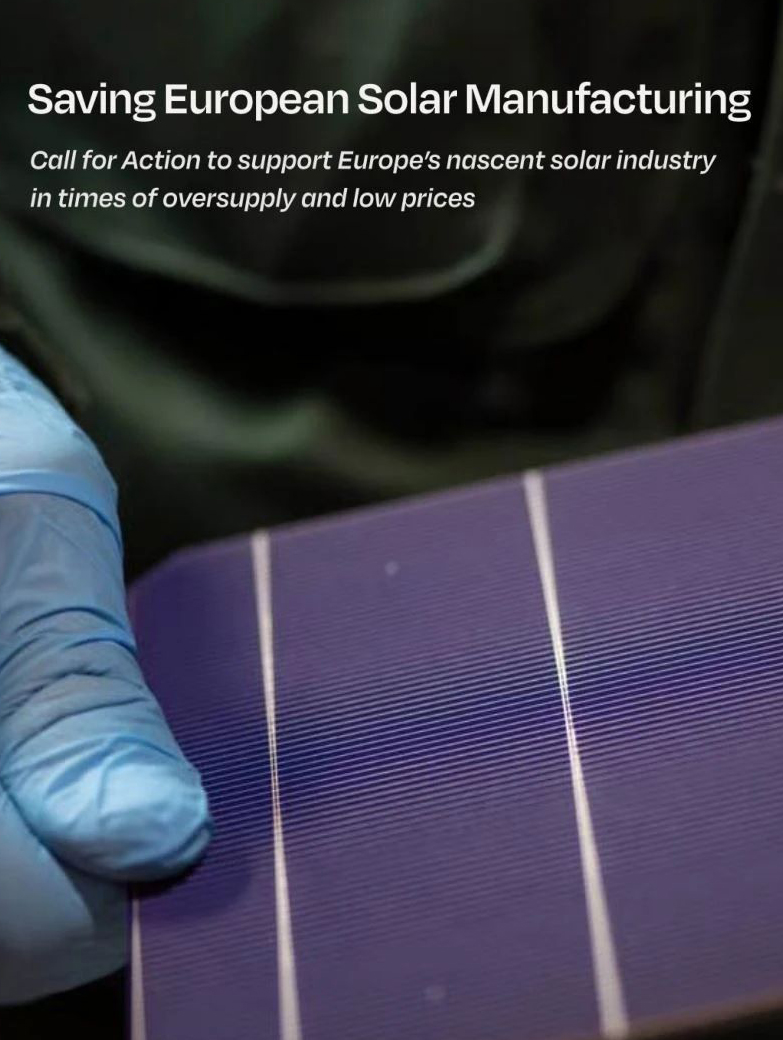
Writing at the end:
In addition to the module category, SPE's CEO was even more outspoken in his video presentation about the oversupply of inverters and batteries, which is also seriously threatening the European domestic industry chain. For the EU, if not acted on will face the risk of losing a key strategic industry in Europe at a time of energy transition, geopolitical need for supply chain diversification and the revival of the European solar manufacturing industry. In the long run, the European market is still the best market, but now Chinese manufacturers in other markets in the fierce competition and spilled over into the original local market, so the market masters need to do something to protect the local businessmen to breathe, the worst set up trade barriers is not unlikely to happen again.
Source: Solar Storage Planet Jobs













